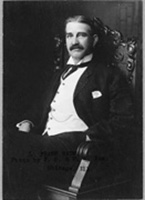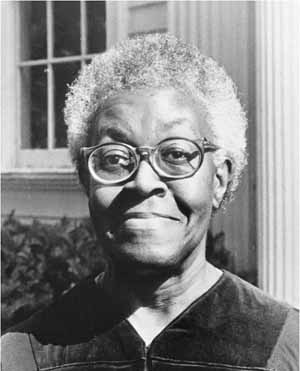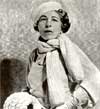
Laurie Kaye Abraham
Born: in Cleveland, Ohio
Pen Name: Laurie Kaye Abraham, Laurie Abraham Connection to Illinois: Abraham is a former reporter for the ''Chicago Reporter'' and received her bachelor's and master's degrees in journalism from Northwestern University. Biography: Laurie Kaye Abraham is a freelance writer and is currently a senior editor at ''ELLE'' magazine. Abraham began her career at ''American Medical News'' in the late 1980s and then moved to ''The Chicago Reporter'' to work as an investigative reporter. She has written for the'' New York Times Magazine'', ''New York'' magazine, ''ELLE'', ''Mother Jones'', ''Health'', ''Salon'', among many other publications and has also been the features editor at ''Mirabella'' magazine. Abraham has been featured on programs including ''The Today Show'', NPR’s ''Fresh Air'', ''Larry King Live'', and ''Anderson Cooper: 360''.
Awards:
- ''Mama Might Be Better Off Dead'' was chosen as one of USA Today's ten best books of the year and a Lingua Franca Breakthrough Book.
Website: http://www.laurieabraham.com/
Laurie Kay Abraham on WorldCat : http://www.worldcat.org/search?q=laurie+kay+abraham
Selected Titles
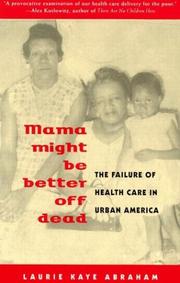 |
Mama might be better off dead : ISBN: 0226001393 OCLC: 27976454 University of Chicago Press, Chicago : ©1993. Mama Might Be Better Off Dead is an unsettling, profound look at the human face of health care. Both disturbing and illuminating, it immerses readers in the lives of four generations of a poor, African-American family beset with the devastating medical problems that are all too common in America's inner cities. The story takes place in North Lawndale, a neighborhood that lies in the shadows of Chicago's Loop. Although surrounded by some of the city's finest medical facilities, North Lawndale is one of the most medically underserved communities in the country. Headed by Jackie Banes, who oversees the care of a diabetic grandmother, a husband on kidney dialysis, an ailing father, and three children, the Banes family contends with countless medical crises. From visits to emergency rooms and dialysis units, to trials with home care, to struggles for Medicare eligibility, Abraham chronicles their access (or lack of access) to medical care. Told sympathetically but without sentimentality, their story reveals an inadequate health care system that is further undermined by the direct and indirect effects of poverty. When people are poor, they become sick easily. When people are sick, their families quickly become poorer. Embedded in the family narrative is a lucid analysis of the gaps, inconsistencies, and inequalities the poor face when they seek health care. This book reveals what health care policies in Washington, D.C., or state capitals look like when they hit the street. It shows how Medicaid and Medicare work (and don't work), the Catch-22s of hospital financing in the inner city, the racial politics of organ transplants, the failure of childhood immunization programs, the vexed issues of individual responsibility and institutional paternalism. One observer puts it this way: "Show me the poor woman who finds a way to get everything she's entitled to in the system, and I'll show you a woman who could run General Motors." Abraham deftly weaves these themes together to make a powerful case for health care reform while unflinchingly presenting the complexities that will make true reforms as difficult as they are necessary. Mama Might Be Better Off Dead is a book with the power to change the way health care is understood in America. For those seeking to learn what our current system of health care promises, what it delivers, and how it is delivered, it offers a needed place for the debate to begin. |
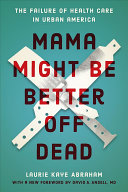 |
Mama might be better off dead : ISBN: 9780226623702 OCLC: 1051778250 |
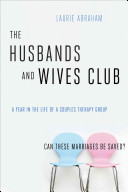 |
The husbands and wives club : ISBN: 1416585478 OCLC: 417435458 Simon & Schuster, New York : 2010. Documents the stories of five couples in a group-therapy program, revealing how the challenges they addressed reflect issues impacting many marriages today and how such conflicts may be reconciled. |


